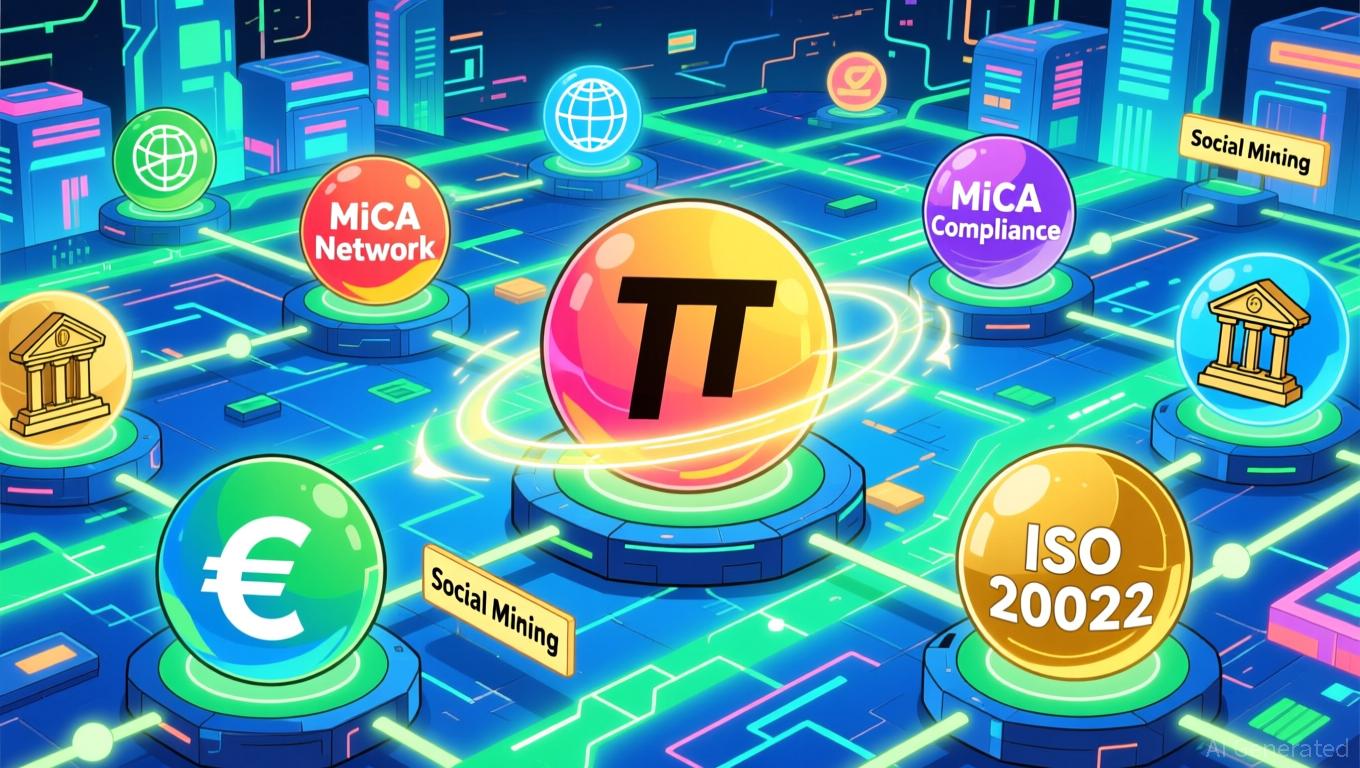MAHA's Struggle with Identity: Corporate Connections Versus Community Origins
- Robert F. Kennedy Jr.'s MAHA movement faces internal fractures as corporate partnerships and policy shifts alienate grassroots supporters. - Critics accuse the administration of abandoning anti-vaccine roots through $500M funding cuts and collaborations with biotech firms like Eli Lilly . - Former allies condemn MAHA's "identity crisis," while 67% public support persists despite warnings about coalition dilution from experts. - Kennedy defends pragmatic alliances as necessary for governance, but faces pr
Robert F. Kennedy Jr.'s "Make America Healthy Again" (MAHA) initiative, which once brought together anti-vaccine proponents and environmentalists, is now experiencing internal divisions due to conflicting goals and involvement with corporations. Grassroots members claim the leadership has abandoned its original mission, while Kennedy and his supporters argue that adapting to the realities of leadership is necessary to broaden the movement’s impact.
This discord became especially apparent this week as Kennedy was criticized by former supporters and dismissed staff. Gray Delany, who was removed from his position at the Department of Health and Human Services (HHS) in August, expressed on a podcast, "

The administration's balancing act has drawn further scrutiny.
Kennedy has sought to quell dissent, defending figures like White House Chief of Staff Susie Wiles and adviser Stefanie Spear against conspiracy theories suggesting they are undermining his agenda. "
Public support for MAHA remains robust, with two-thirds of Americans endorsing the initiative in a June Ipsos poll.
As MAHA navigates its identity crisis, Kennedy's ability to reconcile idealism with political pragmatism will determine whether the movement remains a force for change-or splinters into irrelevance.
Disclaimer: The content of this article solely reflects the author's opinion and does not represent the platform in any capacity. This article is not intended to serve as a reference for making investment decisions.
You may also like
Crypto ATM Leader's $100 Million Deal Highlights Industry's Regulatory Challenges
- Crypto Dispensers, a Bitcoin ATM firm under federal money laundering investigation, seeks $100M sale amid legal pressures. - Founder Firas Isa faces 20-year prison risk for allegedly converting illicit funds to crypto via ATMs between 2018-2025. - DOJ alleges the company violated AML rules by funneling proceeds into obscured digital wallets, challenging crypto sector compliance. - Market downturn and rising regulatory costs accelerate industry consolidation as mid-sized firms struggle with compliance dem

Bitcoin Updates: Navigating the Balance Between Innovation, Market Fluctuations, and Regulatory Challenges
- MicroStrategy's Q3 2025 earnings surged to $8.42/share via Bitcoin gains, but shares fell 14% as mNAV approached 1x, limiting further BTC purchases. - DeFi faces $12B liquidity crisis; 1inch's Aqua protocol aims to unify fragmented strategies while preserving user custody and capital efficiency. - UK NCA uncovered $B+ drug network exploiting crypto to funnel funds to Russian elites, highlighting blockchain's dual role in innovation and illicit finance. - Aerodrome Finance's front-end attack amid merger w

Bitcoin News Today: Bitcoin's Battle Between Bulls and Bears: Large Holders Increase Holdings Amid Potential 60% Decline
- Bitcoin faces 60% bear market risk per Andy Edstrom, who cites historical triggers like hacks and leverage unwinds, yet maintains a 40% $200,000 upside potential. - Whale accumulation (1,436+ 1,000-BTC wallets) contradicts traditional bear signals, with macro strategist Gert van Lagen highlighting "unprecedented demand" from large holders. - Leverage Shares and BexBack introduce amplified crypto products amid 21% YTD declines, raising concerns about volatility risks in leveraged trading. - Conflicting si

Pi Coin’s Absence from ISO 20022: Prioritizing MiCA Adherence and Advancing Ecosystem Expansion
- Pi Coin's exclusion from ISO 20022 is strategic, prioritizing MiCA compliance and community-driven growth over institutional banking integration. - ISO 20022 focuses on institutional crypto assets like XRP , while Pi Network emphasizes EU regulatory alignment and social mining accessibility. - Analysts note Pi's phased approach includes ecosystem development (wallets, tools) before pursuing banking integration, with MiCA compliance enabling EU exchange listings. - The project's organic adoption strategy
